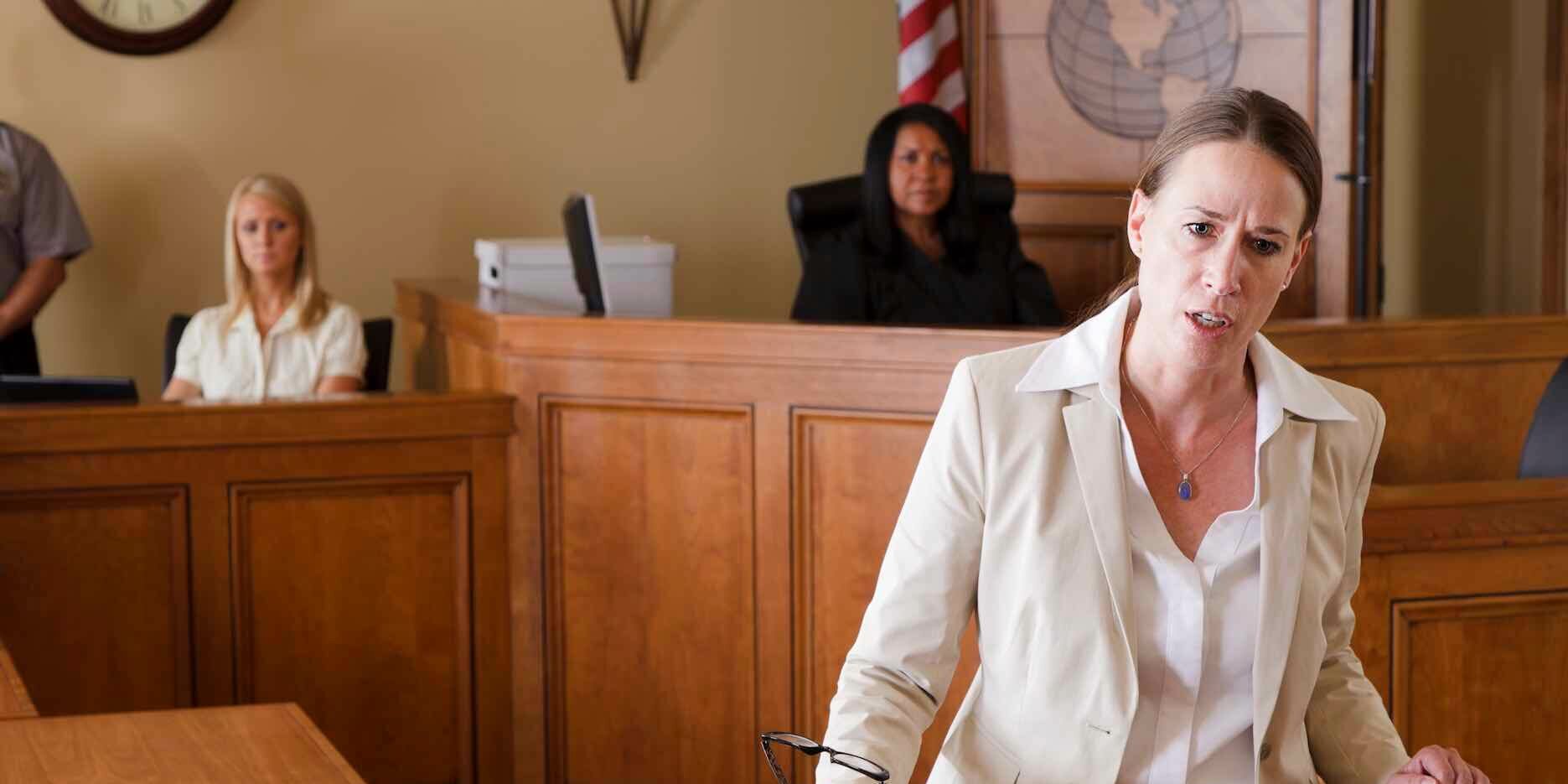California
Business Litigation Attorney

We recognize that starting and running a business is incredibly demanding. When you need an attorney to advise you and protect your interests, experience and efficiency are critical. At some point, every business owner needs to negotiate an agreement, defend a lawsuit, or consider filing a civil suit to recover damages or enforce a key business agreement. When an issue that requires strong negotiation or business litigation skills arises, we urge you to contact us for responsive, savvy representation.
At Vaksman Khalfin, PC, we take the time to understand your business and its priorities, so you can depend on our attorneys to represent you well. Our experience in both transactional and adversarial matters provides your business with an excellent perspective on your challenges and opportunities in handling a business litigation case.
Learn more about Business Litigation
Most common misunderstandings regarding Litigation in industry
One misconception is that it is fast and easy to sue someone in the business. Because of courtroom dramas on television and fictionalized Litigation in movies and books, many people have the perception that settlements or verdicts can be reached quickly and easily. In reality, the process of litigating a business dispute all the way through to a verdict from a judge or jury can take many months, and in most cases, multiple years. The process requires a lot of information to be exchanged between the parties, including multiple depositions (formal interviews on the record between an attorney and a witness or party to the case), and often include expensive expert witnesses. The amount of time spent by an attorney over the course of the process and the costs for court fees, expert witnesses, and other expenses can make Litigation extremely expensive.
Another misconception is that most business disputes are resolved in the courtroom. Because of the time and expense noted above, many parties in business Litigation choose some form of alternative dispute resolution that results in the settlement of claims without ever seeing the inside of a courtroom, let alone receiving a verdict in one. While these types of resolutions typically result in both parties making some concessions and no one getting everything they wanted out of the dispute, such resolutions are much quicker to obtain and much less costly.
What will my business Litigation attorney do for me?
The process of business Litigation can be long and complex. An experienced attorney will evaluate your case and help you set realistic expectations of the time, expense, and effort that will be required to work through your claim or defend a claim from another party. The attorney will also help you understand possible and likely outcomes based on the choices you make in pursuing or defending the Litigation.While you will pay your attorney for their time to complete a number of tasks, including responding to and filing court documents, talking with witnesses, and reviewing evidence, the most valuable service provided by your lawyer will likely be their experience and expertise in Litigation, which allows them to forecast the outcomes of a case. This valuable insight can help you from making costly mistakes or making choices that might damage your case.
Summary
While Litigation in business is difficult to define or to narrow down to a few sentences, overall, whether large or small business Litigation, it is typically the result of a failure of one party to meet the expectations of another. Sometimes it is a dispute between two business partners, a business owner, and a customer, or two rival businesses. In any situation, it is best to seek the advice of a competent business attorney who is well-seasoned in Litigation.
How it works
We will fight for your rights.
Complimentary consultation
We provide a complimentary consultation regarding your matter. If we're a mutual fit, you'll sign an engagement agreement before we get started. Remember, we don't get paid unless and until you do.
Working with a legal team
Our legal team will work with you to determine the best strategy for business litigation in your particular case. After, we serve a pre-litigation demand and negotiate with the defendant. If we don't get what we believe you deserve, we move to the next step.
We will fight for you
If pre-litigation efforts fail, we'll continue fighting for you in court. Going to trial may take a while, but it ensures you get what you deserve.
California Business Litigation
Frequently Asked Questions
Litigation in business typically involves disputes that arise from or relate to transactions in your business, including those with customers, vendors, or other individuals and entities that your company may deal with in the course of ordinary business. Most often, the dispute will be related to an agreement or contract (whether written, spoken, or implied) or a statutory obligation of one of the parties. Depending on the type of business you are engaged in, the actual topic of the dispute can vary widely, though most arise from the failure of one party to meet the expectations of the other.
The factors involved in any specific business Litigation law scenario will vary greatly depending on the cause of action that is filed. If you seek the advice of an experienced attorney business Litigation analysis can be completed early in the process, so you understand the risks and the potential outcomes involved with pursuing or defending Litigation related to your business. Once you have selected a business law firm or your attorney business Litigation can proceed, and you can pursue the causes of action that most closely fit your circumstances.
While you are not legally required to have an attorney business Litigation is nearly impossible to navigate without one. If you involve an experienced attorney or business Litigation firm early in the process, the attorney may have the ability to help you avoid Litigation altogether, or if Litigation has already been commenced by you or the opposing party, the attorney can help you to weigh your risks or possible benefits of fully prosecuting or defending your claim or seeking a negotiated settlement. A good attorney will look at the dispute from both sides and help you spot issues that may be problematic long before you ever see the inside of a courtroom. By examining and analyzing the evidence in your case, an attorney can help you navigate the Litigation process and avoid common mistakes, while also helping you to take the best steps forward to ensure the best possible outcome for your case.
All types of business owners and business investors may have need of an attorney’s services. Owners may have to deal with employment issues, like discrimination and harassment claims or wage and hour disputes. All business owners enter into numerous contracts in the ordinary course of business, any one of which may eventually give rise to a dispute and Litigation. Owners, partners, and investors in businesses may also seek the services of a business attorney to resolve ownership, control, or division disputes. While this list gives a general idea of the types of clients that may wish to engage an attorney, the full list is endless, as anyone involved in business may find themselves in need of a business Litigation law firm for any number of reasons.
SUBMIT YOUR CONTACT DETAILS 100% Free Consultation, Always. Free Consultation.
